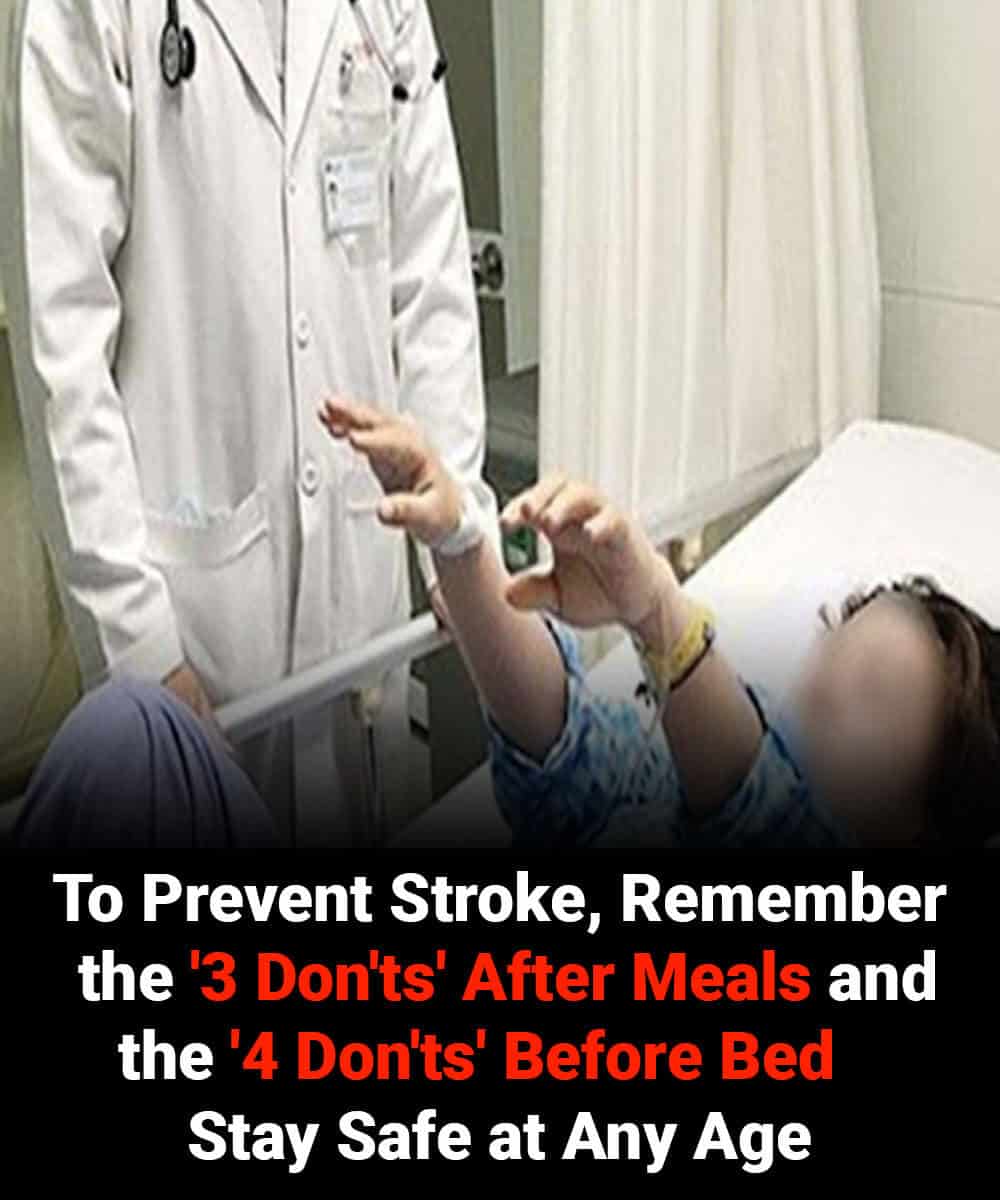Stroke is one of the top causes of death and long-term disability across the globe. It often strikes without warning, leaving lasting damage to brain function and mobility. Fortunately, many strokes are preventable by adopting simple but impactful lifestyle habits—especially surrounding meals and sleep routines. Health experts emphasize the importance of maintaining good blood circulation and controlling risk factors like high blood pressure and poor digestion. A practical approach is remembering the “3 Don’ts” after eating and the “4 Don’ts” before going to bed—strategies that can help safeguard your brain and heart at any age.
The 3 Key Habits to Avoid After Meals
1. Don’t Smoke After Eating
Lighting a cigarette after a meal may seem relaxing, but it poses a major health threat. Smoking immediately after eating restricts blood vessels, elevates blood pressure, and reduces oxygen flow—creating a dangerous environment that encourages blood clot formation. Since digestion increases blood demand in the stomach and intestines, smoking during this time diverts oxygen away from vital organs, which can elevate stroke risk.
2. Don’t Take a Shower Right After Meals
Hot showers feel soothing, but taking one too soon after a meal can lead to imbalanced blood circulation. When you eat, your body directs more blood to the digestive organs. A hot shower redirects this blood to the skin’s surface, decreasing blood flow to the brain. For elderly individuals or those with hypertension, this sudden shift can cause dizziness or even fainting, making it a potentially serious hazard.
3. Don’t Lie Down or Sleep Immediately
Heading straight to bed after eating can lead to indigestion, acid reflux, and poor nutrient absorption. Over time, this behavior may contribute to weight gain, high cholesterol, and increased heart strain—all of which are stroke risk factors. It’s advisable to stay upright for at least 30 to 60 minutes post-meal to support healthy digestion and optimal circulation.
The 4 Dangerous Habits to Avoid Before Bedtime
1. Don’t Eat Heavy Meals Late at Night
Late-night eating puts strain on the digestive system, which should be resting at bedtime. Heavy or fatty meals close to sleep elevate blood sugar and cholesterol levels overnight, both of which are contributors to stroke and cardiovascular disease. Opt for a light dinner at least two hours before bedtime to support restful sleep and better metabolic function.
2. Don’t Drink Alcohol Before Sleep
While alcohol may seem like a sedative, it actually interferes with sleep quality, raises nighttime blood pressure, and increases stroke risk. Chronic alcohol consumption can damage blood vessels, raise the chances of developing atrial fibrillation, and weaken the brain’s resilience to minor vascular injuries. Reducing or avoiding alcohol, especially before sleep, is a vital step in stroke prevention.
3. Don’t Overuse Digital Screens at Night
Using smartphones, tablets, or televisions just before bed can suppress melatonin production, leading to delayed sleep and disrupted circadian rhythms. Poor sleep is linked to hypertension, increased inflammation, and impaired blood vessel function. Cutting off screen time at least 30 minutes before sleep can help regulate sleep cycles and reduce vascular stress on the brain.
4. Don’t Sleep in a Cold Room Without Proper Warmth
Sleeping in a cold environment without enough clothing or blankets can cause blood vessels to constrict suddenly, especially in individuals with pre-existing heart or blood pressure issues. This narrowing of the blood vessels can raise stroke risk, particularly in the early morning hours. Maintaining a warm, stable body temperature during sleep helps preserve healthy blood flow throughout the night.
Conclusion: Small Lifestyle Tweaks That Protect Your Brain
Preventing strokes isn’t just about medication—it’s about the daily choices you make. Avoiding smoking, delaying showers, staying upright after meals, and adopting healthier bedtime habits like eating light, reducing alcohol, limiting screen time, and staying warm can significantly reduce your chances of a stroke. These actions are simple, cost-free, and effective for people of all ages. By paying attention to your post-meal and pre-sleep routines, you empower your body to function more efficiently and protect your brain health. Stroke prevention begins with awareness and consistency—and these small adjustments can make a life-saving difference.
